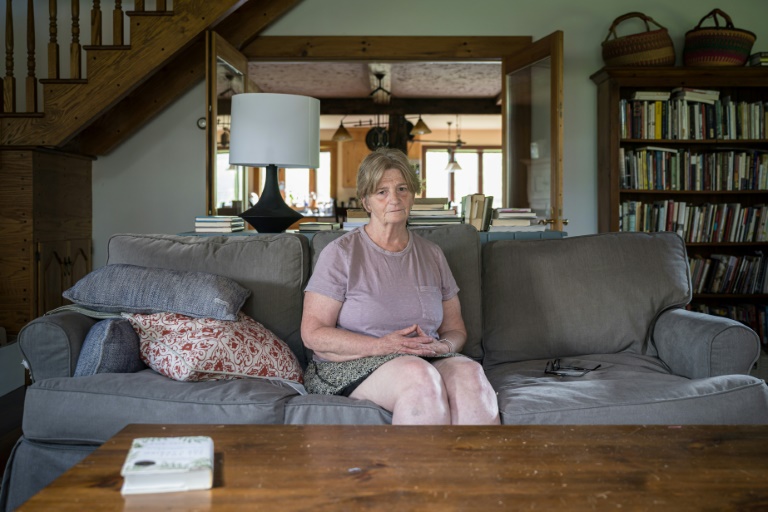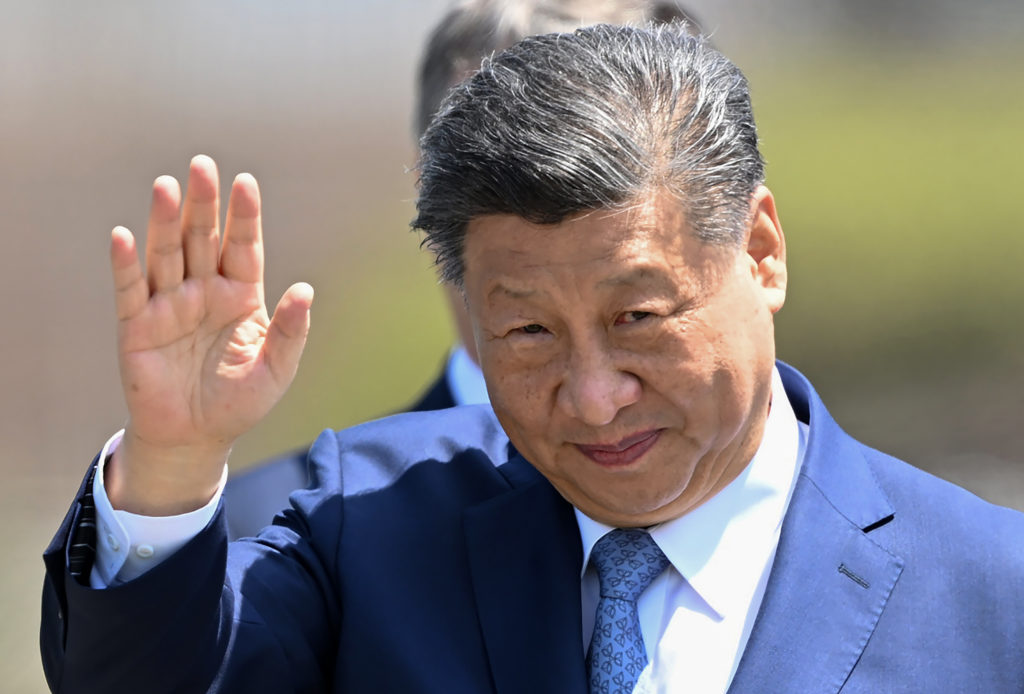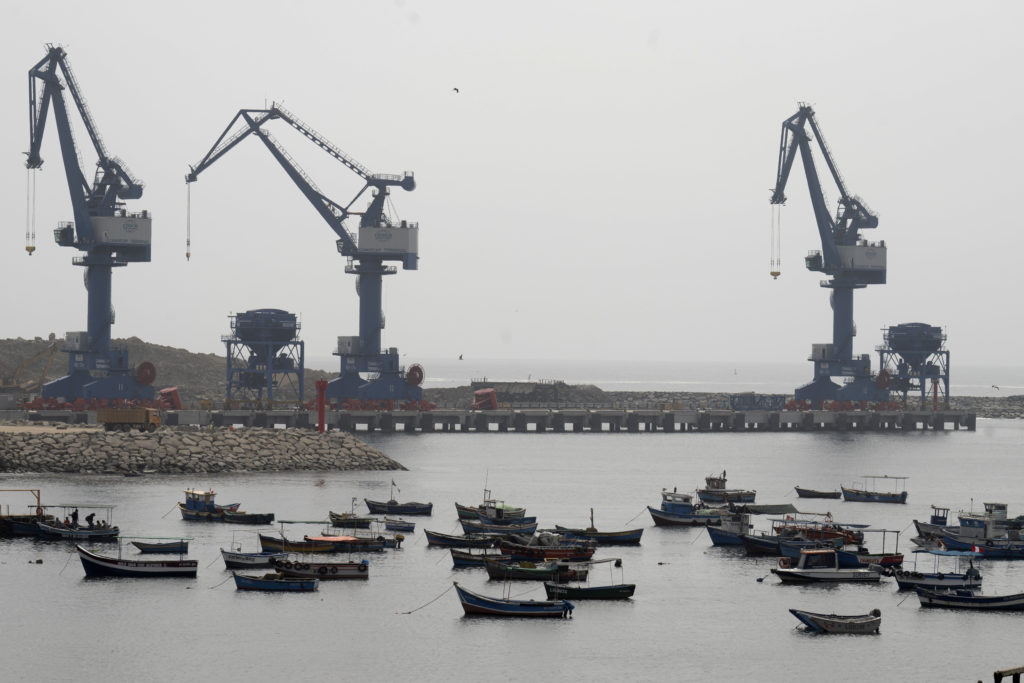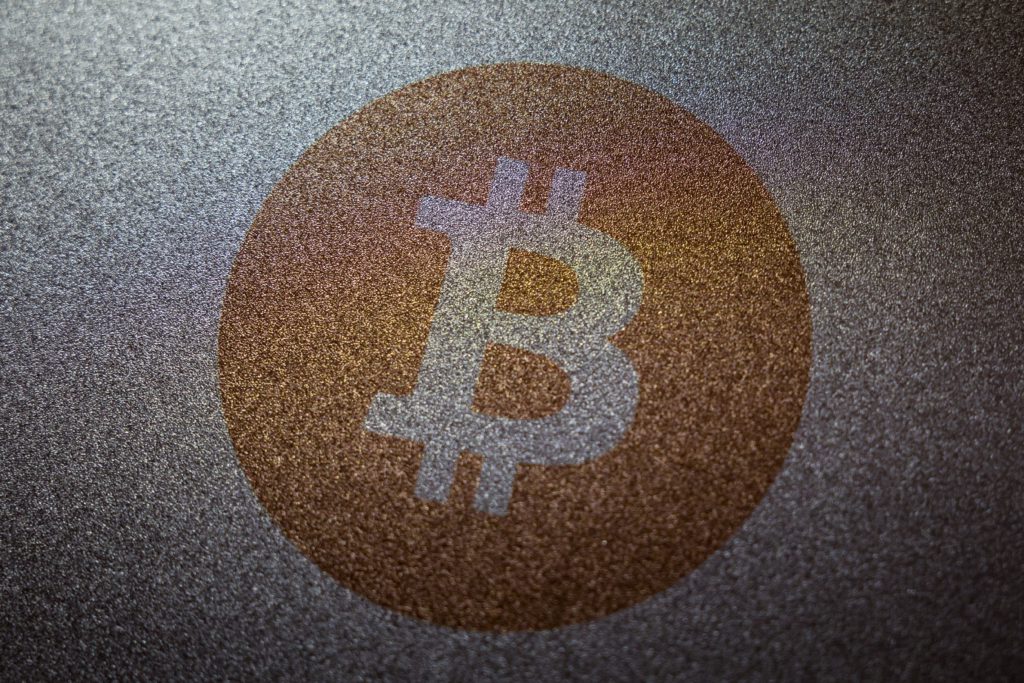Clai Lasher-Sommers alternates between tears and fury over the flow of guns from the factories in her home state of New Hampshire, a top producer in America’s multi-billion dollar firearms industry.
Speaking just miles from the house where an abusive stepfather shot her with a hunting rifle when she was 13, the survivor-turned-activist said she thinks about moving — just to get away from the gun makers.
“I don’t want to be anywhere near them, and the damage that they perpetuate every day,” she said. “I want them to close, but that’s not going to happen.”
The American state that produced and shipped out the most firearms since 2015, New Hampshire has funneled millions of weapons into the already-flooded domestic market of a nation beset by a gun death epidemic.
Recent tragedies were unlikely to disrupt the flow from the small northeastern state, where a lawmaker can walk the legislature’s halls with his pistol, guns aren’t necessarily blamed in deadly shootings and firearms firms provide thousands of jobs.
“It’s definitely a David vs. Goliath situation,” Melissa Rigazio, another state anti-gun violence activist, says of efforts to confront the industry.
“It simply equals more death by guns… The gun manufacturers are very responsible for what’s going on.”
One of the biggest producers is Sig Sauer, which operates a factory surrounded by a green lawn, flapping American flag and “no trespassing” signs in the town of Newington.
The other local heavyweight is Ruger, about two hours’ drive away in Newport. Neither company granted AFP requests for an interview or a factory visit.
Between them, the two firms produced over 1.7 million rifles and handguns in New Hampshire in 2020, a year that saw firearms purchases explode in a nation rattled by the pandemic, a bruising election and mass social justice protests.
– Lack of gun restrictions –
Just over eight million handguns and rifles for domestic sale were produced in the state from 2015-2020 or about 17 percent of the national total, according to the most recent government figures.
While giants like Texas have more gun-linked business — with constellations of suppliers for firearms, parts and ammunition — New Hampshire dominates in per capita number of gun industry jobs, economic output and federal excise taxes, according to industry group NSSF.
The state with a motto of “Live free or die” has long been home to gun makers, as have other manufacturing hubs on America’s eastern seaboard.
A key factor that sets New Hampshire apart from neighbors New York or Massachusetts is a lack of gun restrictions.
It’s among half of America’s 50 states with rules that generally allow people legally able to buy guns to also carry them in many public places without a special license.
States that have tightened gun rules have in turn seen gun makers take their operations — and jobs — to friendlier places.
Mike Hammond, legislative counsel for hardline advocacy group Gun Owners of America, pointed to events after the mass shooting at Sandy Hook elementary school in the eastern state of Connecticut that killed 20 children in 2012.
“Connecticut, after Newtown, basically outlawed certain types of firearms that were made in Connecticut. Guess what?” he asked.
“The firearms manufacturer left Connecticut.”
Advocates like Hammond note that although New Hampshire has made millions of guns, firearm violence mostly happens elsewhere in America.
But homicides take lives in the state too — one of them was Amy Innarelli’s 22-year-old son Chandler, who was shot dead in 2020 while waiting for his girlfriend and young child.
– ‘Guns didn’t murder my son’ –
Innarelli wore an orange t-shirt with her son’s smiling picture for an anti-gun violence vigil in New Hampshire’s largest city Manchester.
She sees the problem as complex, and requiring a multi-fronted response to tackle broader social ills — a sentiment echoed by others at the rally.
“The gun didn’t murder my son, a person did,” she said afterwards.
“We have systematically broken down family dynamics, they are missing humanity in a lot of these kids.”
For Lasher-Sommers, the activist shot by her own stepfather, there’s no escaping that access to weapons is the core of the problem.
“It’s the gun, it’s the gun,” the 65-year-old told AFP at her home in Westmoreland, a small town near the border with Vermont.
But on the other end of the spectrum are people like John Burt, a representative in New Hampshire’s state legislature dedicated to fighting firearms restrictions — who wore a revolver-shaped pin on his lapel, and a handgun holstered on his belt when interviewed.
“The manufacturers help us stay a pro-gun state,” he said, noting his state had not enacted new gun laws after high-profile mass shootings in the country.
“I really do believe some of it is from the manufacturers, their support here. And we don’t want them to leave,” said Burt, speaking to AFP outside the legislature.
Wearing his pistol, the lawmaker walked into the gold-domed building, which had no metal detectors — noting later with a chuckle that neither food nor water are allowed in the house chamber, “but I can have my gun.”







